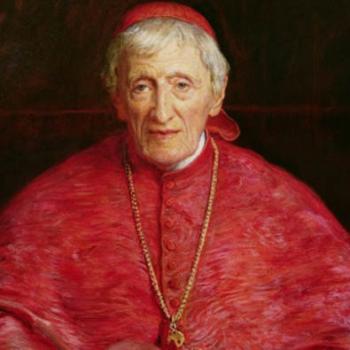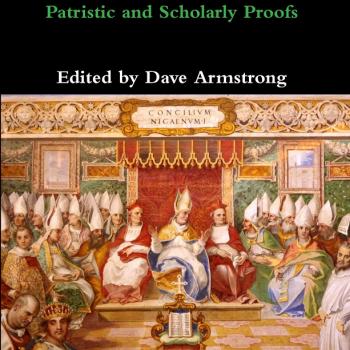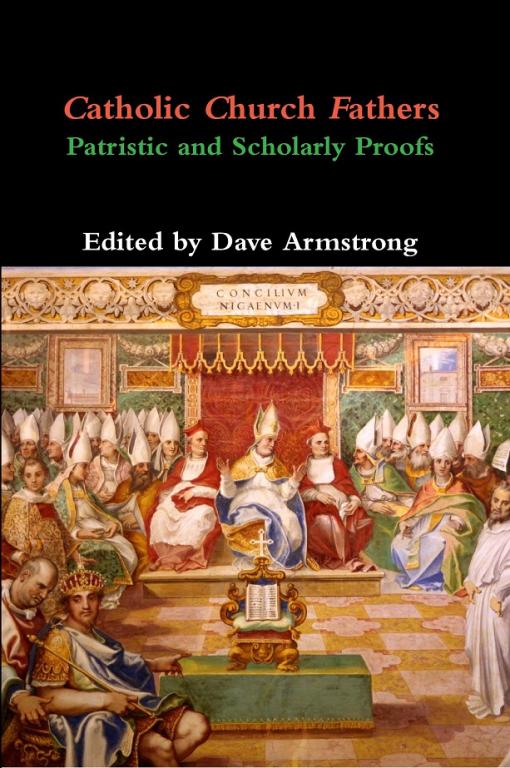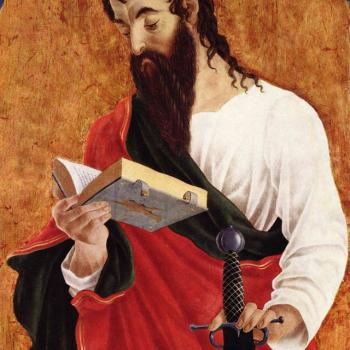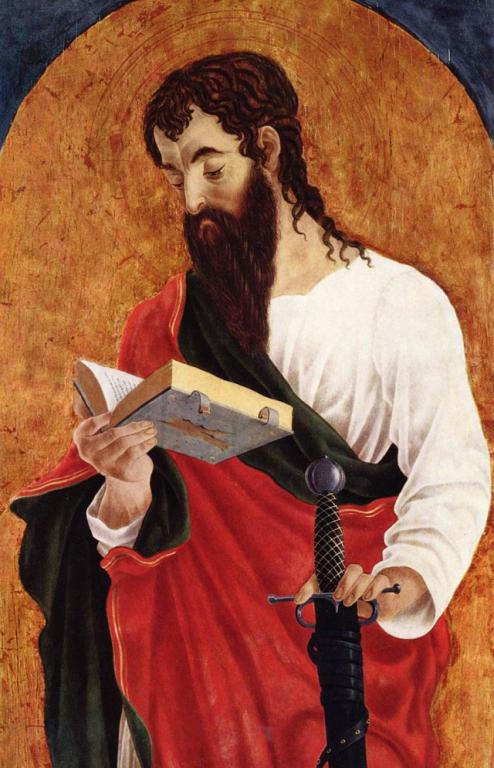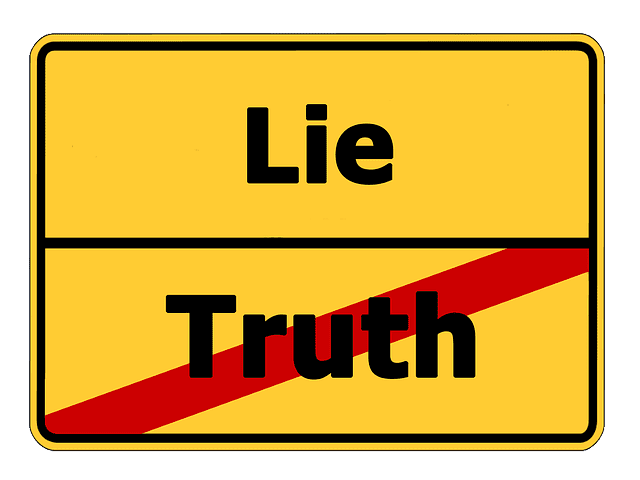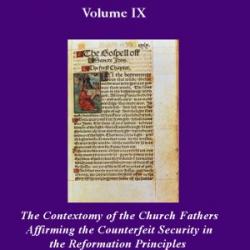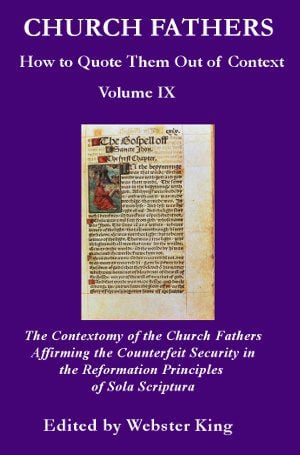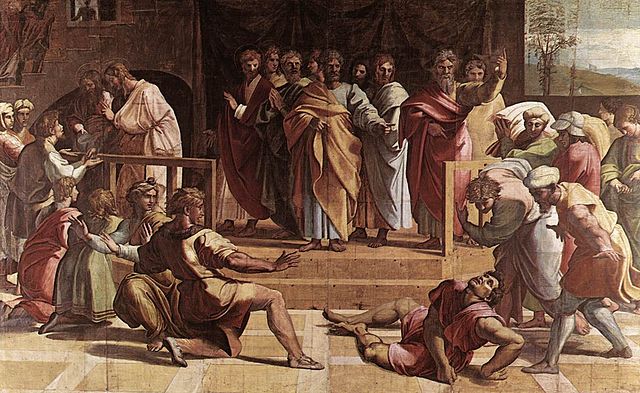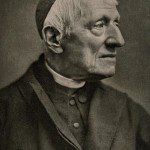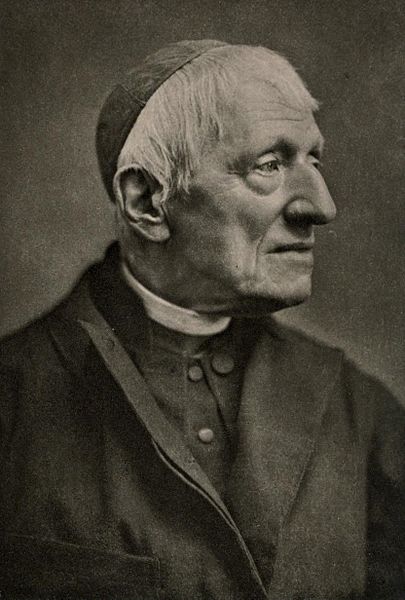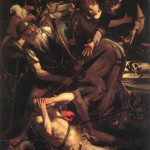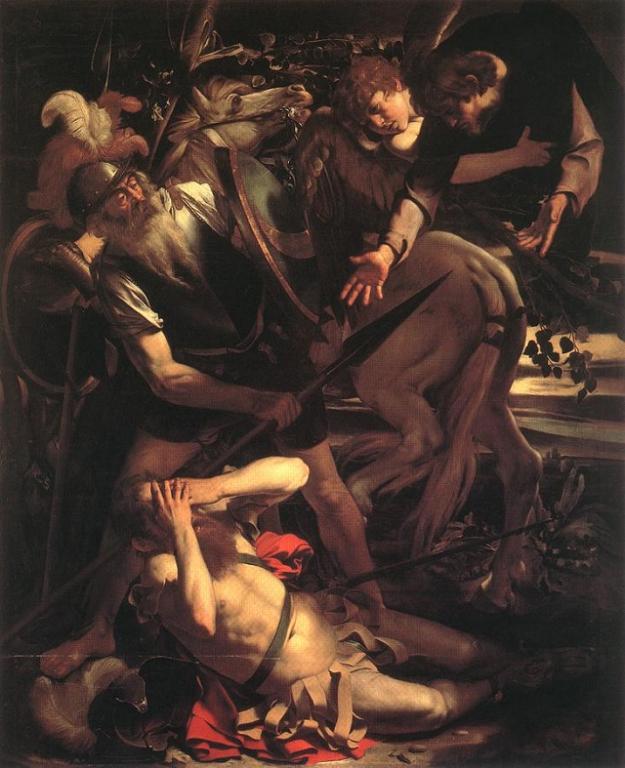
Sophistry: unsound or misleading or specious but clever, plausible, and subtle argument or reasoning.
Many (most?) anti-Catholics are sophists, pure and simple, and sophists ought not be granted the dignity of a public debate. Sure, we can always say that as a result, a few people will become convinced of the Catholic position (and that in itself is, of course, a good thing). But if many more anti-Catholics, after hearing anti-Catholic claptrap presented in debate, attain to a stronger — albeit illusory — self-confidence against the Catholic position and go out and mess up that many more ill-informed Catholics, isn’t it a “net loss” in a sense?
The Catholic position is not well-presented at such “debates” (i.e., public, oratorical ones) because it is complex, highly interrelated, and (in its complexity, spiritual profundity, and inner logic) much more a “thinking man’s religion” than Protestantism is. Presenting such an outlook can’t very easily be done in a time-limited debate where our opponent is playing the audience like a carnival barker or a dishonest politician. It can be done in a book or a lengthy article, or in a website which deals with all the interrelated topics (or at least links to them), so that the inquirer can learn how they are thoroughly biblical, coherent, and true to history (and development of doctrine is also another huge and crucial, necessary factor not easily summarized or even understood by many).
Again, it has to do with the complexity and interrelatedness of the Catholic position, and the difficulty in promulgating it in sound bites, as is the case in so many brands of evangelicalism. Websites are uniquely designed to teach the faith, if this complexity is granted (with the technology of links). I think the only near-equivalent to this in live debate would be a series of debates, one after the other, so that the faith can be seen in its many dimensions and in its marvelous cohesiveness: what I would call a “cumulative apologetic argument.”
In a debate about papal infallibility, for instance, it would be necessary to also have debates on apostolic succession, episcopacy, the nature of the Church, indefectibility, the nature of authority, New Testament teaching on Tradition, development of doctrine, the self-defeating nature of sola Scriptura, etc. I don’t think the average Protestant has any hope of understanding papal infallibility (and “problems” like the Honorius case) without some knowledge of these other presuppositional issues.
But we can’t say that live debates are more effective than websites (or books) simply by recounting how people were affected, since obviously people are also affected by books and websites as well. God will always bring fruit out of every sincere effort to evangelize (which is why I will never knock anyone personally for publicly debating). But that doesn’t necessarily mean we take absolutely every opportunity, for there are such things as prudence, timing, a multiplicity of competing opportunities and responsibilities, etc.
In short, then, I think that any number of Catholic apologists could and would win such a debate on content (because our argument is true, and many apologists could convincingly present it), yet “lose” it in terms of impact on the audience, and in terms of the difficulty of persuading even those fair-minded or predisposed to be convinced of our side. We should take before and after surveys of people who attend these “debates” to see whether what I suspect is true or not (and make it a condition of the debate).
If we must debate these sophists and cynically clever men, at least we need to make sure they have to also defend their position and not just run ours down with the standard, garden-variety anti-Catholic gibberish, bolstered with “quasi-facts” and half-truths presented in a warped, distorted fashion. Those who don’t know any better will always be taken in by those tactics (which is exactly why anti-Catholics continue to use them, consciously or not).
Most public debate formats will not allow a fair exchange to occur, due to complexity of subject matter, and the stacked deck which requires us to defend complex truths, while the anti-Catholic escapes his responsibility of defending the generally unexamined absurdities and self-contradictions of his own position. Many anti-Catholics are never, ever willing to defend their own view beyond the usual trivial, sloganistic, sarcastic jibes.
Anti-Catholics remind me of some strains of creationists in this regard: excellent at critiquing the flaws in evolutionary theory; not quite so good at presenting a cogent alternative or even articulating their own position. But at least such creationists can easily critique evolution by telling the truth about its manifest deficiencies. The anti-Catholic, on the other hand (like certain politicians), has to lie and distort to get his message across. Again, whether or not the lie is deliberate, I do not assert (and I think it is sinful to do so, short of the most compelling, undeniable sort of evidence). The effect is the same, either way
I’m all for serious, in-depth discussion about Catholic historical “difficulties” such as Pope Honorius et al, but with honest, non-intellectually-suicidal historians (including amateur ones) and scholars who don’t approach the subject the way a Nazi doctor approaches an unfortunate Jewish prisoner (i.e., as fodder for his own bigotry, and smug superiority syndrome).
I deny that what most professional anti-Catholics do is “debate” in the first place, in the deepest and most authentic sense of the word (as in, e.g., the many famous and substantive medieval disputations). These events are shams and three-ring circuses. One might call them a “one-way refutation” (assuming our proponent is able and worthy), but I do not give these events the dignity of the title “debate.” Maybe I am too nitpicky and philosophical, or overly idealistic, but I feel this very strongly.
As for facing critics head-on, I don’t think anyone familiar with my website and published writings would regard me as a person unwilling to do that! I have more debates on my website — on more diverse subjects — than anyone I know. My concern is with the format and the goals we are striving to achieve. I don’t deny that anti-Catholics should be dealt with in some fashion (though an argument for that can certainly be made — and from the Bible; see below). I just don’t think live “debate” is the way to do it.
I am not alone in this opinion. R.C. Sproul (a well-known Reformed Protestant apologist and theologian) feels that way about all Catholic apologists, as far as I can tell, so this is not an unheard-of or extreme point of view at all. We can disagree on method respectfully. I respect Catholic apologists who take on anti-Catholics in public debate even though I think it is inadvisable and counter-productive in the long run.
It was argued that Jesus silenced his critics and engaged them in debate (“no one dared ask him any more questions”: Matthew 22:46). In this instance, our Lord Jesus had asked a single question of the Pharisees (22:41-42). They answered, and He asked a follow-up question (22:43-45). Then they could not answer (22:46). This is hardly an evening-long debate, so I really don’t think it applies to the question at hand. We are not likely to “shut up” our anti-Catholic adversaries. They (unlike the Pharisees with God incarnate) will be provided a platform for unlimited sophistry, slander, and lying. We give them a forum by agreeing to debate them that they would otherwise not have.
Furthermore, after we are told that no one asked any more questions, we have recorded Jesus’ famous rebukes of the Pharisees, where He calls them blind guides (23:16, 24; RSV), blind fools (23:17), hypocrites (23:23, 25, 27, 29), whitewashed tombs . . . full of dead men’s bones and all uncleanness (23:27), full of hypocrisy and iniquity (23:28), sons of those who murdered the prophets (23:31), you serpents, you brood of vipers, how are you to escape being sentenced to hell? (23:33).
One might argue, then, that anti-Catholics ought to be rebuked in this way at “debates” (Jesus’ rebukes being oral and in a large crowd), since our Lord’s words just before He gave this rebuke, have been cited (rightly) as our example. We need to look at all that Jesus and St. Paul said and did in this regard. Of course they argued and disputed. That’s beside the point, and who would deny it? My concern is the determination of when such argumentation is futile and vain.
Jesus also said: Do not give dogs what is holy; and do not throw your pearls before swine . . . (Mt 7:6). And: . . . if any one will not receive you or listen to your words, shake the dust from your feet as you leave that house or town (Mt 10:14). And: . . . not all men can receive this saying, but only those to whom it has been given . . . He who is able to receive this, let him receive it (Mt 19:11-12, concerning celibacy and the indissolubility of marriage; implying to some extent, I think, that argument is futile due to obstinacy and lack of grace in some cases). My point is not that all anti-Catholics are swine (!!!!!). Rather, I am contending that public correction of error is not always an ethical requirement or a prudent thing to do (though I would never argue that it is a bad or wrong thing to do).
After His eucharistic discourse of John 6, we are informed that many of his disciples drew back and no longer went about with him (6:66). Yet Jesus didn’t try to run after them and argue them back into faith. He simply let them go and asked the twelve do you also wish to go away? (6:67). Obviously there are times when argumentation and debate are futile, even harmful. Jesus knew this full well, as He knew everything. Surely, many other similar examples could be cited.
It is said that we have the Holy Spirit to guide us in such debates. We certainly do, but I’m not sure we can claim that He guides all our words in such a situation as a “debate” with an anti-Catholic. One context in which this Spirit-guidance was taught is quite a different one, I think:
Luke 21:12-15 . . . .they will lay hands on you and persecute you . . . This will be a time for you to bear testimony. Settle it therefore in your minds, not to meditate beforehand how to answer; for I will give you a mouth and wisdom, which none of your adversaries will be able to withstand or contradict.
“Debates” with anti-Catholics are not a matter of physical persecution. Nor are either party refusing to meditate beforehand how to answer. Debate is not testimony. They are two different entities. Even so, Jesus Himself didn’t argue or say very much when He was persecuted and led to His death. These things are clearly not absolutes: not black-and-white. Jesus and Paul argued and disputed when it was worthwhile to do so (which was most of the time). But they also refrained from arguing and disputing (and taught others to do so) when it was vain and futile, and when the hearers were obstinate and stubborn and hard-hearted. They even recommended shunning.
For exampe, in Matthew 18, the famous passage about disagreements and church discipline, Jesus enjoins reconciliation with someone who wrongs us (18:15). Failing that, we are to go get one or two others as witnesses (18:16), then to take it to the church if need be (18:17). If the person refuses that correction, Jesus tells us to let him be to you as a Gentile and a tax collector (18:17). Have not anti-Catholics lied about our faith and several of us apologists times without number? Are they not often slanderers?
Who will rebuke them out of concern for their souls, rather than grant them a respectability they don’t deserve by these “debates”? I consider anti-Catholics my brothers and sisters in Christ, no matter what they think of me (this is good Catholic theology; in fact, required belief, especially in light of Vatican II). But in certain instances of obstinacy I am told to shun and avoid them, by Jesus and Paul; how, then, could I debate them, in such a circumstance? This is another aspect of this whole thing, having to do with anti-Catholics’ refusal to be civil and charitable and conciliatory with so many of us. This is not a “personal” matter of possible over-sensitivity on our part; it is, rather, a matter of deep biblical and ethical principle, and ultimately concern for the souls of our opponents, as I am trying to show.
St. Paul is no different. Many times he advises an avoidance of “vain disputation”:
For men will be lovers of self, . . . proud, arrogant, abusive, . . . implacable, slanderers, . . . swollen with conceit . . . Avoid such people . . . (2 Timothy 3:2-5)
. . . nor to occupy themselves with myths and endless genealogies which promote speculations rather than the divine training that is in faith . . . vain discussion . . . (1 Tim 1:4, 6)
. . . avoid disputing about words [such as ex cathedra or “ordinary magisterium” in non-Catholic crowds?] which does no good, but only ruins the hearers. (2 Tim 2:14)
But avoid stupid controversies, genealogies, dissensions, and quarrels over the law, for they are unprofitable and futile. As for a man who is factious, after admonishing him once or twice, have nothing more to do with him, knowing that such a person is perverted and sinful; he is self-condemned. (Titus 3:9-11)
Mark them which cause divisions and offences contrary to the doctrine ye have learned; and avoid them. (Rom 16:17)
Have nothing to do with stupid, senseless controversies; you know that they breed quarrels. (2 Tim 2:23)
If anyone teaches otherwise and does not agree with the sound words of our Lord Jesus Christ and the teaching which accords with godliness, he is puffed up with conceit, he knows nothing; he has a morbid craving for controversy and for disputes about words, which produce envy, dissension, slander, base suspicions, and wrangling among men who are depraved in mind and bereft of the truth, imagining that godliness is a means of gain. (1 Tim 6:3-5)
One could go on and on with this strain of Paul’s thought, citing his (and that of others, such as James’) teaching on evil-speaking, etc. There are a host of verses condemning slander and lying, of course (e.g., Ps 34:13, Prov 4:24, 6:16-19, etc.), and fools (Prov 10:18, 14:7, 18:7, 26:5, 11, etc.).
I’m open to another interpretation of all this Scripture, if anyone can show me one. People can legitimately have different opinions on the matter, as it is one of strategy and prudence. I’ve said many times that I rejoice in any fruit that comes from such events. My main point, however, is that there is such a thing as refraining from a debate (whether real or sophistical and farcical) for legitimate reasons, which I am seeking to demonstrate from Scripture. But then again, perhaps it turns on whether or not a particular anti-Catholic opponent is deemed a “fool” or “slanderer” or what not.
It depends in large part on how one defines “debate” or being “good at it.” If by that is meant that a person is able to be quick on his feet and offer both objections and answers; sure, many anti-Catholics are (especially the more educated ones). If, however, one means by being a good debater, being honest with the facts and honestly dealing with one’s opponents best shots, most professional anti-Catholics are atrocious. Is there a middle ground here?
Such “debates,” in my opinion, even positively hinder an honest dialogue. A public debater can virtually never concede a point right on the stage. It’s almost the nature of the beast that that can never occur, and this does not encourage open-mindedness and willingness to change opinions where warranted. All of us converts know about changing our opinions!
My point is that anti-Catholic polemicists do not deserve the attention and notoriety. My argument does not hinge on whether one enjoys or is able to do a live debate.
Anti-Catholicism — objectively examined — is inherently intellectually dishonest, in my humble opinion. That’s behind much of my objection from the get-go. That doesn’t mean all anti-Catholics are deliberately being dishonest; only that their position is such, by its very nature. Therefore, by engaging it publicly, we give it far more credence than it deserves (like debating some fringe anarchist or radical Communist every political season).
Books and websites are a much better way to go, I think. I’ve engaged many of these people in writing (White, Webster, Engwer, Ankerberg, Svendsen, Vanezia, DeMar, Phillip Johnson, many lesser-known folks), so I am obviously not objecting to taking them on altogether. One might argue that writing involves the same dilemma, but my point is that live debate entails many propagandistic, “working the crowd” elements (on our opponents’ part) which writing does not have.
Also, we can take them on once or twice to fight the error, but not all the time, so as not to give them more of a platform and a respectability than they deserve. I do agree that it is a complex prudential matter, though: one for which much prayer is needed. I am not even advocating all cessation of public debate. I am saying that there are certain people we should not debate in public on certain topics, or at least not all the time. This is not even about “oral vs. written” debates per se. It is how best to proceed with certain anti-Catholic polemicists.
I am not judging any man’s soul, only unworthy tactics, and unwillingness to forgive and repent of certain ongoing sins (particularly slander and bearing false witness, and unwillingness to accept any correction, even of demonstrable fact) which are hardly debatable. St. Paul acted no differently. He was much more harsh than I have ever been.
In my opinion, most anti-Catholics have left the field of legitimate, scholarly, apologetic discourse by their slanderous behavior, both towards individuals and towards the Church. One can disagree with Catholicism without the hostility and the distortions. Norman Geisler does it. But he regards us as Christian. It is no coincidence that the approach and “mentality” widely differs according to one’s opinions on the Christian or non-Christian status of Catholicism. By debating slanderers and those who commit intellectual suicide by adopting radically self-defeating propositions, we in effect grant them a legitimacy that they in fact do not possess. But I am speaking more in terms of philosophical and scholarly discourse, than strictly biblical categories. One must mix the two somehow and be consistent: no small task.
Anti-Catholics ought to be rebuked (not debated) by those who are truly concerned for their spiritual welfare. We rebuke, precisely because (far from hating them) we regard these straying sheep as our brothers and sisters in Christ and desire what is best for them (which is what love is, after all).
The same exact standard ought to be applied to Catholic apologists as well. Many people — again, on all sides — seem to think that the ordinary requirements of courtesy and charity go out the window when they are looking at their computer window, let alone in a public debate scenario . . . I despise this in person and on the screen. Always have and always will . . . .
The very notion of a “debate” with a sophist, is, in my mind (as in that of Socrates/Plato) is no debate at all. I hasten to add that this doesn’t mean I disparage anyone who does it or deny that fruit takes place. Quite the contrary. But I would contend: everything works together for good, we know, yet it doesn’t follow from that that it is good (or, more accurately, prudential) to do everything that produces such good as a “secondary” effect. This is simply an opinion on apologetic tactics and strategy. I think principles do come into play in the discussion at some point, but I believe it is nevertheless (clearly) a prudential matter, not an absolute ethical question of right and wrong.
Concerning such “debates” when they do occur, the good part is that non-Catholics hear the truth in a way and to an extent many of them may never have previously. I love that aspect, but even so I think the negatives outweigh the positives, for the reasons I have presented here and elsewhere.
Two other Catholic apologists wrote:
I agree that, when speaking to them, we have to speak the truth in love . . . I remain dubious that it does more good than harm to provide [such men] with a platform in which [they] can use [their] perverted intellectual gifts to throw more mud than a Catholic can wipe off in an hour’s time.But who have you debated that does not try to throw as much mud on your face that you can’t wipe off in an hour’s time? That is the sole objective of your opponent in a debate.
This gets right to one of my original points. Debate is not about slandering one’s opponent and “throwing mud” but about biblical/Christian truth and logic and education and mutual understanding. We ought not to reduce discussion on the most important things in life down to the level of the silly, idiotic political or pop culture “debates” that vainly seek to pass for intelligent, informed discourse.
We in effect do this by agreeing to allow our opponents to engage in these unworthy tactics — to give them a forum and “legitimacy,” even though we may not engage in the questionable tactics. We are enablers and co-dependents in a sense (to use psychological lingo for a moment). Or to use more biblical language, we help to make our anti-Catholic friends “stumble.”
I’ve heard several true debates/discussion where this farcical mutual monologue and playing the crowd like an unscrupulous Madison Avenue ad man did not take place. I think of Rod Rosenbladt or Harold O.J. Brown on the Protestant side. I think Norman Geisler could do it, or R. C. Sproul, if he were willing. But then again, these men are not anti-Catholic (excepting Sproul, who is the most sophisticated and respectable type imaginable), which supports my long-held opinion that anti-Catholics are scarcely capable of true debate — their position being ludicrous and self-defeating from the outset, and their ethics (sadly) often not much better.
So part of our disagreement is concerning the very definition of “debate.” I deny that these farces are worthy of the name. Whatever good might be accomplished is another issue, but they are not debates, because our opponents are propagandists and sophists, not serious debaters or even what I would describe as “amateur philosophers/thinkers” of the Socratic/Thomistic model. This is a factor which even goes beyond the “complexity of Catholicism” vs. the “sound-byte and sloganistic nature of pop-Protestantism” sub-strain of my overall argument.
I have dealt with the issue of the superiority of written debates over oral, but others seem to dismiss that based on the fruit which apparently occurs during “successful” Catholic vs. anti-Catholic public debates, and biblical examples of oral debate. I don’t think that is as simple as it may seem at first. Of course Jesus and Paul debated, and oratorically (it being a much more oral society with neither widespread literacy nor the printing press) but they did not always, and they urged us to refrain from such discussions once they possessed particular characteristics. We are commanded not to engage in “stupid controversies” or to interact with fools and slanderers.
Another apologist wrote:
When we confront these perpetrators, we lessen their influence. One of the best ways to do that is in a public forum, as Jesus and Paul did. Jesus didn’t stop in the middle of a debate with the Pharisees and say, “Oh, wait a minute guys, I want to go home and write this all down so that there is no misunderstanding about what I am saying.” God forbid. There is a certain dynamic that occurs when the devil is confronted face-to-face. It you play your cards right, it can be the most convincing form of communication there is.
My desire is to acknowledge the best points outlined above. There is good fruit which occurs in these encounters, despite all. Again, I submit that there may be a middle ground where some Catholic apologists can debate if they wish, and therefore reach some Protestants who wouldn’t otherwise likely be reached (though the latter assumption itself is debatable, I think). At the same time, they can apply ethical pressure on our anti-Catholic brothers in Christ and uphold the other principles I have been emphasizing.
We are commanded to avoid slanderers, and the ill effects on many that anti-Catholics (given a public platform) will cause. So, say 40% (let’s say that is 400) of the audience goes away more anti-Catholic, more confirmed in their errors, and more zealous to persuade Catholics out of their Church; and say 10 people come away convinced of Catholicism. Sure, we rejoice for them, yet if 40 times their number take a downward slide spiritually, is this really a tactical gain for our side (or for the Kingdom, period)? We can rejoice in the one or ten conversions all we like (and we should, and I do), but we have to be realistic about the negative effects which also occur.
That’s why I have suggested a before-and-after survey at these “debates” to determine exactly what results were achieved. If such surveys repeatedly indicated an overwhelming victory for our side, I would happily concede the point and seriously re-examine my position. If indeed we are “successful” at these events then we ought to be able to prove it with some objective, measurable, verifiable criteria. Two or three letters from converts will not do. Even then, it wouldn’t be the end of the question at hand, because if anti-Catholics continue to be slanderers, we are commanded to avoid them (and by extension, not grant them notoriety and a public forum and a legitimacy they are not entitled to).
It doesn’t prove that we must do these debates, because 1 or 10 people become convinced. They are free agents; if they are able to be convinced at such an event, then they will also have the gumption to seek truth out on their own, on the Internet, through books (even EWTN these days), or via an informed Catholic friend or family member whom God puts in their life, or tragedy, or what not. Everyone chooses to either pursue or squash truth. God is bigger than all our efforts, no matter how noble and good in intention. If we start thinking we control the grand scheme of things, we are in trouble, and we minimize God’s sovereignty. This is the temptation of the apologist, as we apologists all well know, I’m sure.
If in fact, our anti-Catholic opponent in a public debate convinces far more percentage-wise for his cause (let’s assume for the sake of argument and dramatic exaggeration that they are ultimately damned), do we continue to say that this is a net gain? I don’t see how we can. And it is difficult to know what occurs at these farcical events, short of a comprehensive survey. That would bring objectivity into this, rather than the anecdotal evidence of a few wonderful letters, concerning which we all rejoice.
If God could use Balaam’s ass, I’m sure he could use (and does use) an unsavory anti-Catholic character for the salvation of souls. Does that mean we continue to debate such a one till the cows come home, no matter how he acts, no matter how much he lies and slanders and acts hypocritically and arrogantly? No . . . .
Another apologist argued:
I would also like to remind everyone that the Catholic Apologist is not there to be treated “with respect and dignity”. Sure, one would expect that, among Christians, we would hope that would be the case, but that’s a fringe benefit.
I agree in a broad sense; but even this is a more complex matter than I think many realize. On the other hand, Paul appealed to Caesar and the pagan Roman justice system when he was slandered. We are merely holding our opponents to their own ostensible standards of conduct if indeed we are of a mind to point out the moral correctness of such treatment (i.e., for principle’s sake, not personal dignity and suchlike). Cardinal Newman publicly made mincemeat of Kingsley when the latter accused him of special pleading and equivocation (in effect, sheer dishonesty). Should he (and St. Paul) have just “taken” the abuse? Not every situation is a “turn the other cheek” scenario. Prudence requires that we treat each situation on its own, exercising discernment and taking into account all of the biblical evidence, conscience, possible result, and so forth.
We’re not required to repeatedly debate slanderers and sophists, knowing full well what will occur beforehand. The same Lord told us to “shake the dust off our feet” and not to “cast your pearls before swine.” Many Catholic apologists seem to give one side of the biblical material along these lines and largely ignore or at least minimize the other strain, whereas I am straightforwardly dealing with both and trying to present a view which incorporates both harmoniously (as we are all duty-bound to do, it seems to me).
It would be entirely different with an ecumenical Protestant. That doesn’t involve lying and misrepresentation and unworthy rhetorical tactics. That is merely an honest and respectful difference of opinion. Why don’t we debate those folks instead of the fools, slanderers, and sophists? Arguably, we would reach many more people at a debate like that, because they would be of much more open mind from the outset.
Another Catholic apologist wrote:
Taking slander is part of the business. It’s the “movie” that we are in, and I hope we can act our part and not give up, for that’s exactly what they want us to do when they slander us.
This entirely misses the point (at least my point), if I do say so. I dealt with this above, but in a nutshell: it is not personal slander and an affront to my (or anyone else’s) “dignity” that I am talking about, but rather, slander (and sophistry) as the modus operandi of a fellow Christian, which we support and encourage by giving this person a forum to continue doing it. That is arguably making him stumble (in biblical language) or offering an occasion of sin (in Catholic moral theological terms) or enabling (in psychological / AA lingo). Romans 14:13, 19.
I have never been opposed to debates per se (as everyone who has visited my website must surely know), but rather, what I feel is the perversion of debates by engaging those who corrupt the very concept of what a debate should be all about.
***
(originally posted on 11-27-00; abridged on 1-12-18)
Photo credit: poster for the 1928 film The Sideshow [public domain / Wikimedia Commons]
***



